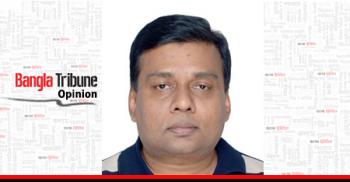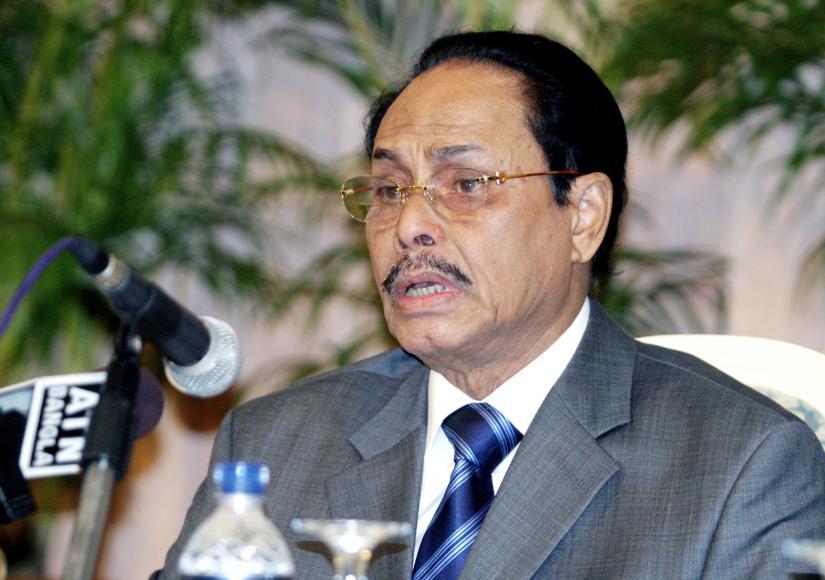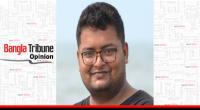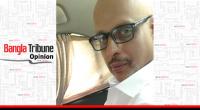 The news of long time ailing former President HM Ershad’s death attracted widespread media attention at home and abroad. In our country both the mainstream media and the social media discussed Ershad’s legacy quite at length. Any observer of media may find that the debates and discourse on Ershad’s political roles in the media are no doubt fascinating but public perception of his image as reflected especially in the social media is sharply contrasting with the mainstream media. .
The news of long time ailing former President HM Ershad’s death attracted widespread media attention at home and abroad. In our country both the mainstream media and the social media discussed Ershad’s legacy quite at length. Any observer of media may find that the debates and discourse on Ershad’s political roles in the media are no doubt fascinating but public perception of his image as reflected especially in the social media is sharply contrasting with the mainstream media. .
The differences of coverage between the mainstream and social media ranged from depicting him as a typical ruthless military dictator to a social reformer; from the harbinger of immorality in politics to a saviour of Islamic religion in the country etc.
One missing link in the entire debate surrounding Ershad’s political roles is the context of world politics which brought him into power, like many other dictators of the world, Those were the days when the cold war was on and Ershad manoeuvred the then political situation proficiently. He played his Cold War card to pacify the Western World, developed good relations with India in his personal capacity and played well his Islamic card to be closer with the Middle Eastern Muslim countries. So, while evaluating his military reign, we must not forget how he was aided by the then bipolar world order, which, with many other factors, helped him to play the religion card in politics.
For obvious reasons, after his death our mainstream media wanted to dissect Ershad’s leadership through the prism of our long-cherished democratic values. His multifarious political roles in the last three decades were highlighted and his role during the 1971 War was questioned. His alleged association with General Manzur murder, his fickle minded image in terms of important political decision-making and his overt immoral character were the subject matters of the mainstream media’s focus on his political leadership.
But the representation of his ultimate demise and subsequent discussions in social media were found to be in sharp contrast with his mainstream media image. His death was deeply mourned by quite a large section of the common people on social media. The writer tried to read the comments and posts made by the people on his death and found that his legacy and an appreciation of his populist measures still survive in peoples’ psyche. Thousands of people joining his funeral or his posthumous peace being prayed for by famous religious leaders as shown in the videos only show the extent of his popularity among the masses.
So, it can safely be assumed that at the mass level, as a person Ershad’s popularity hardly declined despite many ups and downs in his quite a long political career. His legitimacy among the common people may not be considered as an enigma in contemporary politics where populism is often found to have taken precedence over morality. But this dichotomy raises further questions for political scientists as to the reasons why populist and authoritarian regimes are still liked by common people in some parts of the world.
The elite perception, as reflected in the mainstream media, denotes how over the years Ershad had created a moral vacuum in the polity by transforming the social fabrics of our country. Very often, references are being cited about his personal immorality, his killing of innocent people, his lust for power, deep aspiration for becoming a poet which may remind us of a medieval sultan in this part of the world. Interestingly, this elite perception is being challenged on social media when common people expressed their deep shock, showed sympathy and kindness and prayed for his place in the heaven hereafter. His successes and failures were compared with successive regimes and he was highly eulogized for his development works, decentralization activities, religious outlook, personal charisma etc. Many academics jokingly say that in this part of the world commoners do not think that a ruler would be flawless and certain moral deviations among the kings are well-accepted from the ancient period!. While scrutinizing people’s reaction on social media I found this perception was very much at work and the common people’s attitudes were very much lenient towards Ershad. His public image is a kind of benevolent dictator which a section of people still accept.
Interestingly, this elite perception is being challenged on social media when common people expressed their deep shock, showed sympathy and kindness and prayed for his place in the heaven hereafter. His successes and failures were compared with successive regimes and he was highly eulogized for his development works, decentralization activities, religious outlook, personal charisma etc. Many academics jokingly say that in this part of the world commoners do not think that a ruler would be flawless and certain moral deviations among the kings are well-accepted from the ancient period!. While scrutinizing people’s reaction on social media I found this perception was very much at work and the common people’s attitudes were very much lenient towards Ershad. His public image is a kind of benevolent dictator which a section of people still accept.
Perhaps the differences of the media coverage give us few insights about the somewhat awkward political culture of our country. One of my major objectives of writing this article is point out the differences between the elite perception and common psyche and to find out whether there is any missing link which our political elites are overlooking.
Elite perceptions and people’s aspirations are not always synonymous. It is for such reasons extra judicial killings, described as 'crossfire' by law enforcers, are sometimes backed by the people, who find it as a fitting solution in a system where justice is often delayed. And governments in Bangladesh have defined it is as a popular support for such killings.
So the challenges for political elites as well as the mainstream media are to sensitise the citizenry about their individual and societal rights in a democratic world. Democratic parameters are being misunderstood by the people and rulers like Ershad banked on this to violate the constitutional pillars of the society. The citizens must be enlightened, educated further for a truly functional democracy. The huge popularity of Ershad on social media after his death just reminded us that the people are either unaware of their democratic rights or their ideas of good governance or constitutional supremacy have not developed yet.
The writer is the chief executive of Bangladesh Center for Research and Communication (BCRC). He can be reached at [email protected]
 Opinion
Opinion
30870 hour(s) 23 minute(s) ago ;
Morning 01:18 ; Thursday ; Apr 25, 2024
Contrasting media coverage of Ershad’s death
Send
Md Shamsul Islam
Published : 18:40, Aug 08, 2019 | Updated : 18:44, Aug 08, 2019
Published : 18:40, Aug 08, 2019 | Updated : 18:44, Aug 08, 2019
0 ...0 ...
/ab/hb/
Topics: Top Stories
***The opinions, beliefs and viewpoints expressed in this article are those of the author and do not reflect the opinions and views of Bangla Tribune.
- KOICA donates medical supplies to BSMMU
- 5 more flights to take back British nationals to London
- Covid19: Rajarbagh, Mohammadpur worst affected
- Momen joins UN solidarity song over COVID-19 combat
- Covid-19: OIC to hold special meeting
- WFP begins food distribution in Cox’s Bazar
- WFP begins food distribution in Cox’s Bazar
- 290 return home to Australia
- Third charter flight for US citizens to return home
- Dhaka proposes to postpone D8 Summit
Unauthorized use of news, image, information, etc published by Bangla Tribune is punishable by copyright law. Appropriate legal steps will be taken by the management against any person or body that infringes those laws.
Bangla Tribune is one of the most revered online newspapers in Bangladesh, due to its reputation of neutral coverage and incisive analysis.
F R Tower, 8/C Panthapath, Shukrabad, Dhaka-1207 | Phone: 58151324; 58151326, Fax: 58151329 | Mob: 01730794527, 01730794528


